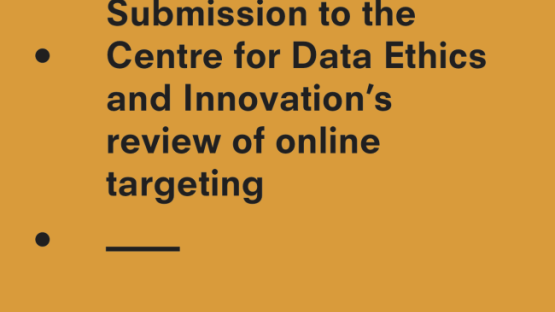
Privacy International submission to the Centre for Data Ethics and Innovation's Review of Online Targeting
PI responds to a call for evidence on online targeting.
Key points
- Over the past decade online targeting has become much more invasive.
- People are often unable to meaningfully understand how their data is collected, shared, and used.
Advocacy
Post date
14th June 2019

Learn more
Our fight


